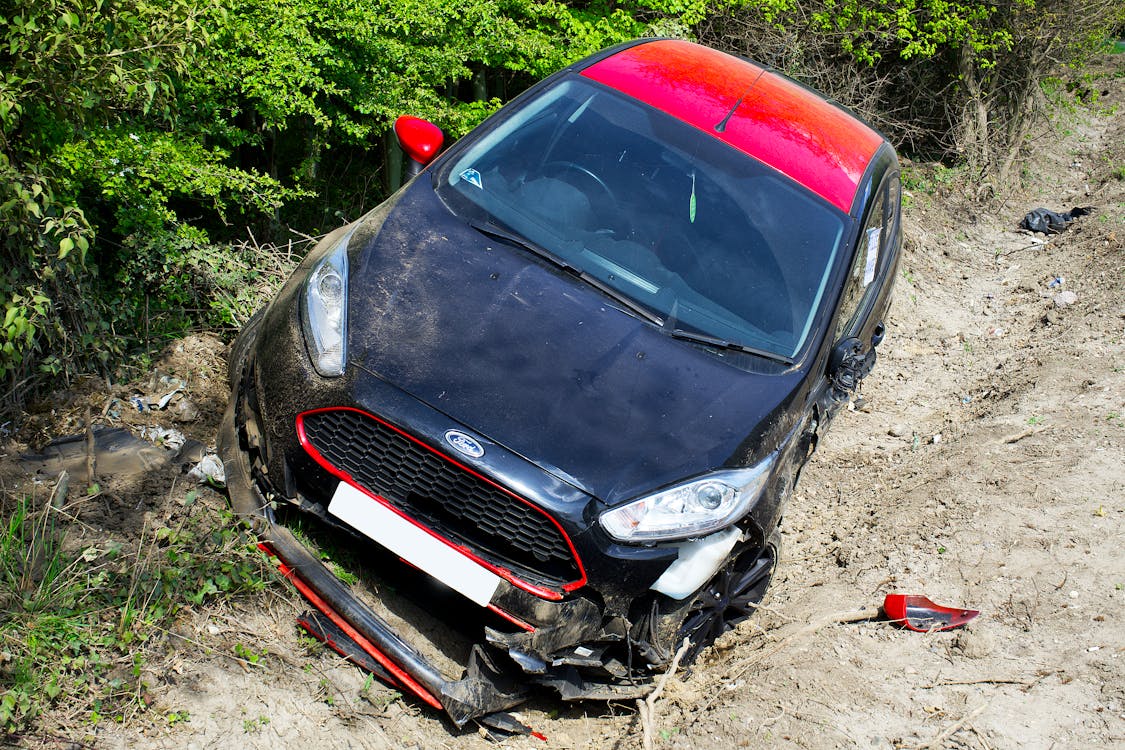In the three months since the two newly formed regions from the formerly known as Brong-Ahafo area were formed, a total of 21 youngsters have perished in three different accidents.
Two of the occurrences took place in the Ahafo Region in November 2022 and December 2022, while a third incident took place in the Bono East Region in January 2023.
Two of the three incidences took place as the kids were moving between communities to get to school.
The youngsters who went to the farm with their parents on Saturday only perished tragically in one of the events in the Ahafo Region.
Eight of them died instantly when the tricycle that was taking them home was involved in an accident.
Parents feel compelled to urgently request that stakeholders take action to put measures in place to stop these instances from happening because the situation has gotten so upsetting.
Accidents
Five students from Techire DS Elites Academy perished on the Adrobaa-Techire route in the Tano North Municipality of the Ahafo Region on Friday, November 11, 2022, when the car taking them to school was involved in an accident.
37 of the 42 passengers in the flimsy school bus survived the crash, but they all had injuries that required immediate medical attention.
The driver of the school’s minibus, with the license plate AW 6345-11, lost control of the steering wheel at a portion of the road while traveling from Adrobaa to Techire, where the school is located. As a result, the vehicle somersaulted.
Those who were brought to the St. John of God Hospital in Duayaw Nkwanta, consisting of three men and two women, did not survive.
The dead people, according to the authorities, were between the ages of eight and ten.
Following a horrifying accident on the Hwidiem-Goaso highway on Saturday, December 10, 2022, eight children killed instantly at Ata-ne-Ata, a farming village in the Asutifi South District of the Ahafo Region.
Eight of the 11 victims who died in the tragedy were children, ranging in age from 11 to 17.
Ata-ne-Ata was the scene of the event when a tricycle carrying the victims and some bags of ginger attempted to pass another trike.
However, the tricycle overturned and flung the passengers and ginger bags into the middle of the road, where they were immediately run over and killed by an approaching KIA vehicle from the Goaso side of the road.
The victims, who were between the ages of 11 and 17, came from the villages of Nkaseim, Kwamo, and Ohiatua. They had gone to the hamlet of Obengkrom to collect ginger.
A day after the event, Ernest Karim, an assemblyman from Wuramuso, told the Daily Graphic about it. He claimed that despite numerous public forums the police had held to educate the public about the dangers of utilizing tricycles to transport passengers, the message had been ignored.
Tricycles are still used today to transport kids to school in the various settlements, especially those coming from cottages.
Another heartbreaking report concerning the deaths of eight pupils from the Atikagome hamlet in the Sene East District in the Bono East Region on the Volta Lake on Tuesday, January 24, 2023, broke just as the public was beginning to heal from the two shocking tragedies.
A boat carrying 20 pupils from the neighborhood to the fishing town of Wayokope capsized on the Volta Lake, killing eight of the children on board.
The National Disaster Management Organization (NADMO) reported that some individuals worked with fishermen and Marine Police Unit officers to save 12 of the students who were trying to swim to safety.
Five boys and three girls, all between the ages of five and twelve, were among the dead. They were unable to swim to escape due to the lake’s powerful waves.
All eight bodies had been taken from the lake before NADMO arrived and transported to the Atikagome community, where they were later buried following the performance of customary rites.
No youngster was wearing a life jacket, said to Paul Tocha, a Field Officer of the MIHOSO International Foundation who is tackling child trafficking in the region.
He claimed that when the event occurred at around 7 a.m. on that tragic day, one of the pupils was in command of the boat.
According to Mr. Tocha, the kids were utilizing the canoe alone on the Volta Lake and risking their lives since one of them was skilled at managing it.
Kwasi Adu-Gyan, the Bono East Regional Minister, led a group to the Atikagome community shortly after the incident to offer condolences to the victims’ relatives.
In order to prevent future occurrences of this kind of disaster, he promised that the government will obtain a boat specifically for students at the community.
In order to help secure the safety and security of people, especially students, Mr. Adu-Gyan said steps were being made to offer life jackets for consumers.
In order to keep local kids from having to cross the lake to get to school, he said that the Bono Regional Coordinating Council (RCC) planned to build a school building for them.
George added that if the systems were in place, pupils without life jackets would never have to ride in a boat driven by a young child without any experience to cross the Volta Lake.
The Children’s Act, 1998 (Act 560), the primary legal framework for child protection at the assembly level, was Mr. Ankamah’s challenge to Metropolitan, Municipal and District Assemblies (MMDAs).
He outlined how the act obliged district assemblies to defend and uphold the rights of the children living within their borders and made an appeal to MMDAs to put policies in place to ensure the act’s implementation.
Ankamah, the Bono Regional Director of the Department of Children, told the Daily Graphic that institutional failings were to blame for the accidents involving kids, adding that if mechanisms were functioning properly, such tragedies wouldn’t be happening again.
“If the systems are functioning properly, the Ghana Police Service’s Motor Convey and Traffic Directorate (MTTD) and Driver and Vehicle Licensing Authority (DVLA) will not permit school buses that are not roadworthy to transport students to their schools.”
According to Mr. Ankamah, if systems are functioning properly, schools would not overcrowd the small children in the minibuses as if they were not human beings. He also accused the parents of such schools of contributing to such overcrowding incidents.
In order to safeguard children from any threats, “we all have a responsibility to play. We must let systems work and not sit back and wait for tragic occurrences to happen before we act,” Mr. Ankamah stated.
He emphasized the necessity for cooperation between the DVLA, MTTD, educational institutions, and Parent-Teacher Associations (PTAs) in order to implement the necessary safeguards to protect kids from accidents.
In order to protect children in society, Mr. Ankamah said it was essential for state institutions to design with children in mind.
He said that the agency had implemented the Preventive Child Protection Approach (PCPA) program to protect kids from accidents as well as other types of hazard.
Mr. Ankamah expressed regret that such horrifying instances occurred to defenseless children in their pursuit of an education and stated the situation concerned the department.
Following previous accidents involving youngsters, Sunyani parent Joana Fofie, 35, told the Daily Graphic that she was living in fear.
She added that because she had two kids who rode the school bus to school every day, she felt uneasy whenever the kids departed for school.
According to Mrs. Fofie, she always felt uneasy until her kids came home, especially after hearing about the school bus disaster.
She urged state officials and other government agencies in charge of ensuring road safety to inspect school buses for roadworthiness before permitting them to transport children to and from school.

